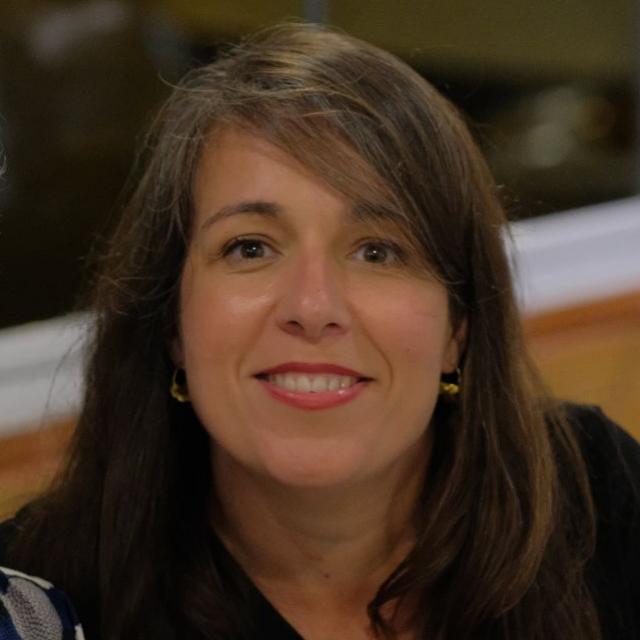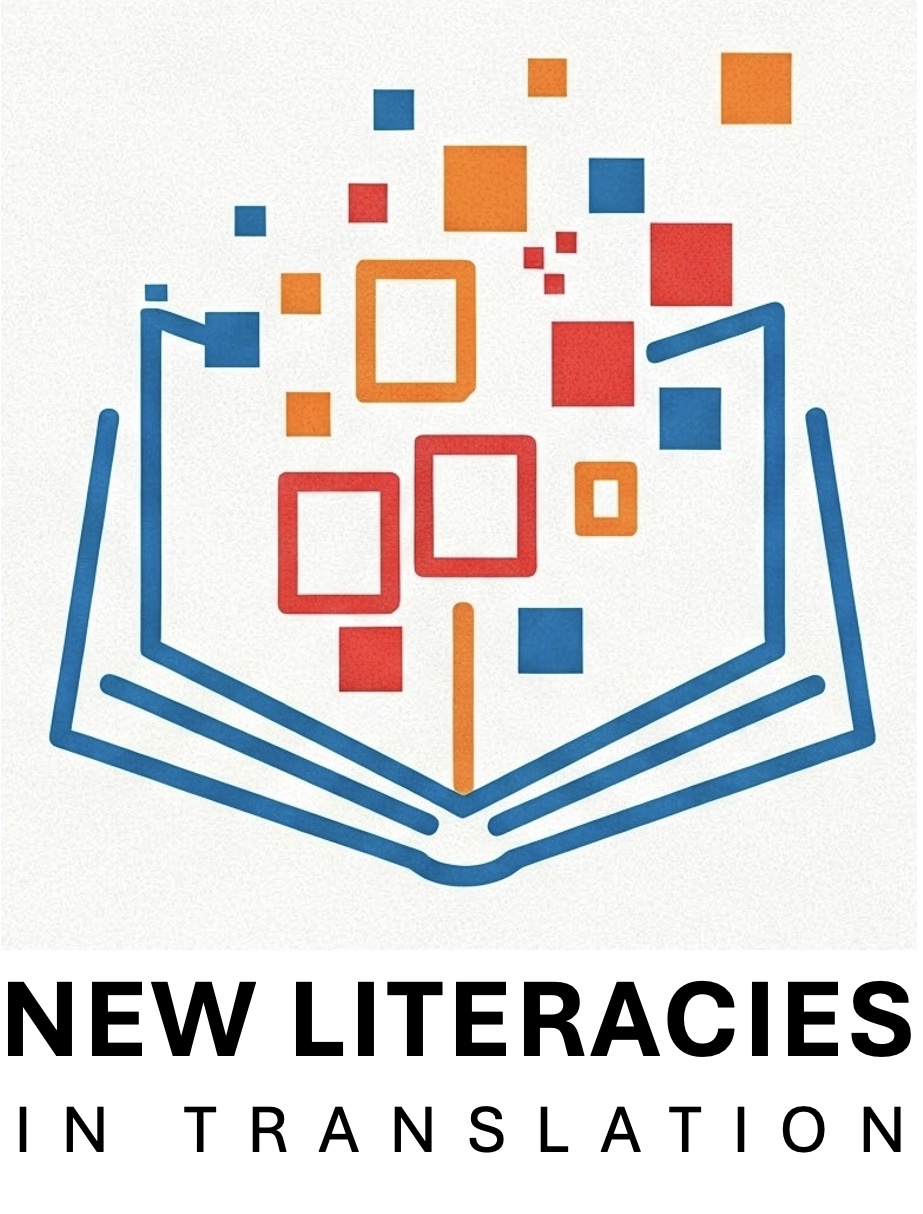International Conference
October 9 – 10, 2025 in Tarragona, Spain
General information
The Intercultural Studies Group at Universitat Rovira i Virgili is delighted to announce the conference on New Literacies in Translation, with Pilar Sánchez-Gijón and Joss Moorkens as the keynote speakers.
  |
The conference aims to provide a platform for scholars in Translation and Intercultural Studies, industry professionals, and doctoral students to engage in relevant discussions on current and emerging issues in Translation Studies, share innovative ideas, and foster collaborations that will help shape the discipline's future.
New literacies are of growing significance as the translation spaces evolve in response to rapid technological advancements and societal transformations. The conference will explore how emerging technologies, industry shifts, and new literacy practices are redefining how we approach, understand, and perform translation in diverse contexts.
Translation literacy has been described as "knowing, evaluating and reflecting on the way translation in general works" (Massey 2021: 32). Bowker and Buitrago Ciro (2019: 33) note that the definition and recognition of literacies shift in response to changing social demands. For some years, machine translation literacy has been attracting attention (Bowker and Buitrago Ciro 2019; O'Brien and Ehrensberger-Dow 2020; Loock and Léchauguette 2021; Krüger 2022; Hackenbuchner and Krüger 2023; Sanchéz Gijón et al. 2024). For Bowker and Buitrago Ciro (2019: 88), MT literacy involves understanding of the basics of how machine translation systems process texts and can be used, and how to modify the output of a machine translation system.
One of the emerging and increasingly significant types of literacy is AI literacy. According to Long and Magerko (2020), AI literacy encompasses "a set of competencies that enables individuals to critically evaluate AI technologies, communicate and collaborate effectively with AI, and use AI as a tool online, at home, and in the workplace". This concept extends beyond basic familiarity with AI to include understanding its strengths, limitations, and ethical implications.
In this rapidly evolving technological landscape, it is crucial to clearly define and understand the nature of these literacies. As technology and societal demands continue to reshape the way we communicate, learn, and work, these literacies encompass a diverse range of competencies that go beyond traditional skill sets, which may include the ability to critically engage with technology, adapt to multimodal communication channels, and navigate complex intercultural and interdisciplinary contexts. They reflect not only technical knowledge but also the ethical, reflective, and creative skills required to thrive in an increasingly dynamic and interconnected world.
The conference topics include, but are not limited to:
- The historical evolution of translation literacies
- Traditional translation literacy
- AI-driven tools and their impact on translation literacy
- Ethical implications of machine translation and AI in translation
- Multimodal literacies in translation: adapting to diverse communication channels
- Digital and/or AI literacy in translation workflows
- Translation literacy in educational contexts
- The role of data literacy in translation and localization
- Cultural literacy and intercultural competence in translation
- Interpersonal skills in the digital era
- Future literacies: preparing translators for emerging technologies
References
Bowker, Lynne, and Jairo Buitrago Ciro. 2019. Machine Translation and Global Research: Towards Improved Machine Translation Literacy in the Scholarly Community. Leeds: Emerald Publishing. DOI 10.1108/9781787567214
Hackenbuchner, Janiça, and Ralph Krüger. 2023. "DataLitMT- Teaching Data Literacy in the Context of Machine Translation Literacy". n Proceedings of the 24th Annual Conference of the European Association for Machine Translation, pp. 285-293, Tampere, Finland. European Association for Machine Translation. https://aclanthology.org/2023.eamt-1.28/
Krüger, Ralph. 2022. "Integrating professional machine translation literacy and data literacy". Lebende Sprachen , 67 (2), pp. 247-282. https://doi.org/10.1515/les-2022-1022
Massey, Gary. 2021. "Translation literacy in additional language learning: Closing the conceptual divide between translation and language education". Bulletin suisse de linguistique appliquée, 114, pp. 31-45. https://digitalcollection.zhaw.ch/items/b525b741-d71b-4cfa-ad5e-9dde056b1fbb
O'Brien, Sharon, and Maureen Ehrensberger-Dow. 2020. "MT Literacy-A cognitive view". Translation, Cognition & Behavior, 3 (2), pp.145-164.
Sánchez Gijón, Pilar, Esther Torres Simon, Mireia Vargas Urpí, Nora Aranberri, Dragoş Ciobanu, Ana Guerberof Arenas, Janiça Hackenbuchner, Dorothy Kenny, Ralph Krüger, Joss Moorkens, Miguel Rios Gaona, Isabel Rivas Ginel, Caroline Rossi, Alina Secară, Antonio Toral. 2024. "Literacy in Digital Environments and Resources (LT-LiDER)". In Proceedings of the 25th Annual Conference of the European Association for Machine Translation 2, pp. 55-56, Sheffield, UK. European Association for Machine Translation (EAMT). https://aclanthology.org/2024.eamt-2.28
Venue and Languages
The conference will take place at the Faculty of Arts (Facultat de Lletres) of Universitat Rovira i Virgili, on the Mediterranean south of Barcelona. The main language will be English, although abstracts in Catalan and Spanish are also welcome.
Paper presentations
Paper presentations will be limited to 20 minutes per speaker, followed by 15 minutes of Q&A.
Important dates:
Abstract submission: May 31, 2025. Please send an abstract of your proposed paper in about 300 words (including references) to the registration site here.
Notification of acceptance: June 30, 2025
Registration/payment: Early bird: July 1-31, 2025; Regular payments: August 1-September 15
Submission of full papers: to be announced in due course
Fees
Early bird payments (prior to July 31, 2025): URV members and students: 120€; General fee: 150€
Late payments: URV members and students: 180€; General fee: 200€
For any queries or suggestions, please contact congressos(ELIMINAR)@fundacio.urv.cat.


Organising Committee:
Nune Ayvazyan, Universitat Rovira i Virgili (Conference Chair)
Lídia Gallego-Balsà, Universitat Rovira i Virgili
Inés Garcia, Universitat Rovira i Virgili
Anthony Pym, Universitat Rovira i Virgili
Maria Rosich Andreu, Universitat Rovira i Virgili
Conference organized within the framework of the research project Literacies and the Future of Occupations (PID2021-122575NB-I00) funded by the Spanish Ministry of Science and Innovation, 2022-26.

